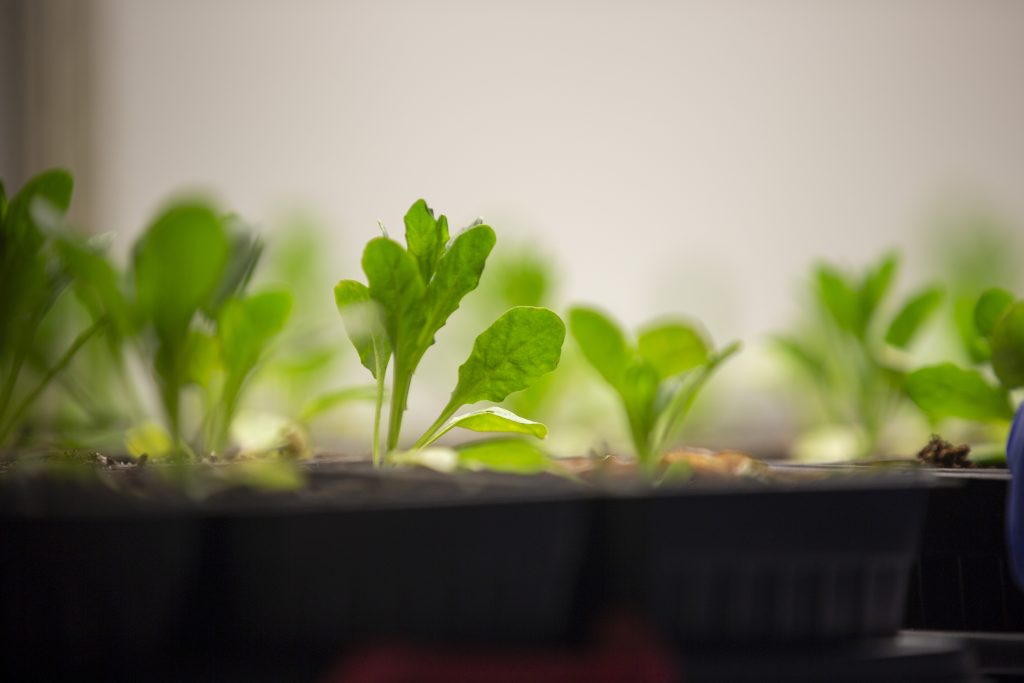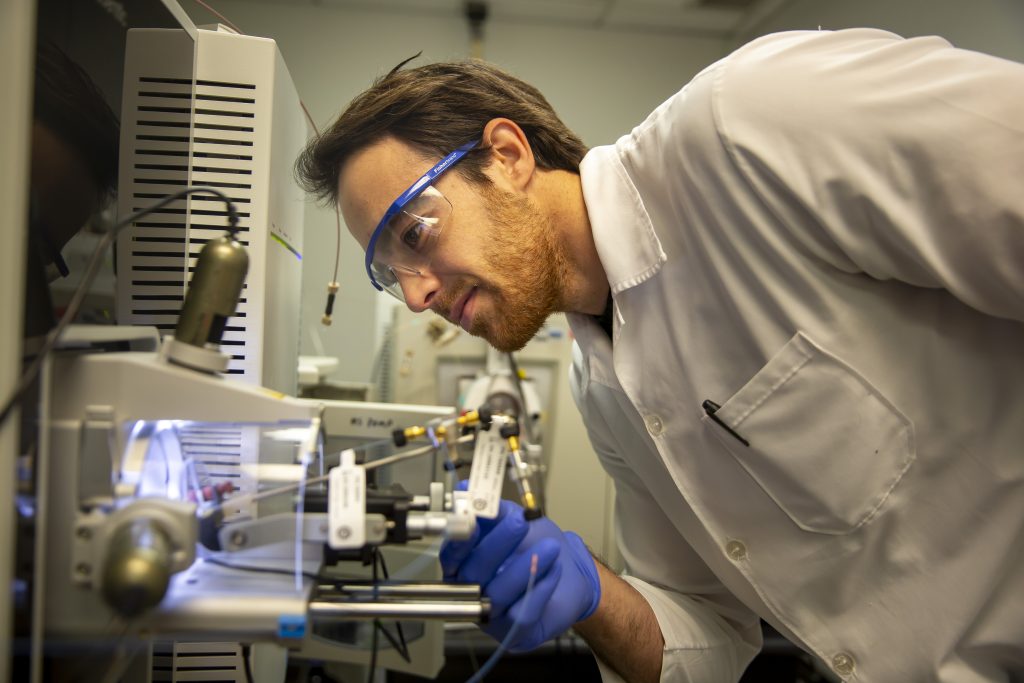
As the climate continues to change and the landscape of the agriculture industry also shifts in response, one CAFNR researcher’s work is making strides that support the health of the planet and the farming families that feed us. Jay Thelen, professor of biochemistry, has just patented a biotechnological advance that can increase the oil content of common cover crops, allowing them to be harvested and used in making biofuels.
“Oil and protein are two opposing sources of value in oilseed crops, and historically protein is the more valuable of the two,” Thelen said. “That’s changing now. Oil is moving up in value, and in oilseed plants that don’t make much protein or nutritionally-balanced protein — the oil is nearly all the value.”
Cover crops — crops planted in suboptimal land and between regular growing seasons of row crops like soybeans or corn — are becoming an important strategy for carbon sequestration, but they have not traditionally been profitable for producers. Currently, the majority of cover crops are tilled into the soil when the time comes to replant the field. This is where Thelen’s technology could introduce a fundamental change to the value of cover cropping. By increasing the oil content yield in crops like Camelina and Pennycress, the seed value is enhanced and ultimately harvested and processed into biofuels, and that means profit for the farmer in addition to government incentives in place for planting cover crops.
“I come from a farming family,” Thelen said. “My dad was a farmer and my uncle still farms, so I respect their desire to make a profitable and sustainable living from their land. What we are trying to do is make a higher-value cover crop that incentivizes the farmer beyond what the government is already doing.”

Thelen accomplished the increase in oil production by targeted engineering of the enzyme complex that catalyzes the first step in the pathway for fatty acid production. The idea originated when his lab discovered several years ago that one of the proteins belonging to this important complex is expressed at markedly lower levels than its catalytic partner – although he expected the ratios to be the same. The gene for the more abundant protein subunit is ancestrally encoded in the small genome of the plastid organelle, whereas the other gene resides within the nuclear genome – and apparently there is insufficient coordination of gene expression between the two genomes.
“It was kind of an evolutionary hiccup you might say,” Thelen said.
He then began searching for a way to counteract that hiccup and synthetically enhance activity of the enzyme complex by upregulating the lower abundance protein, the patent rights, which has been licensed to a Boston-based agricultural biotechnology company, Yield10 Bioscience to be further developed and commercialized.
Thelen emphasized that practical applications of research like this do not happen without contributions from basic biological research. His technology could not have been created without the underlying research that exposed the protein ratio differences.
“We need to continue to fund and support basic biology discoveries,” Thelen said. “We don’t always know what the end result will be. It is often only with the benefit of time that we are able to understand it and apply that basic science.”